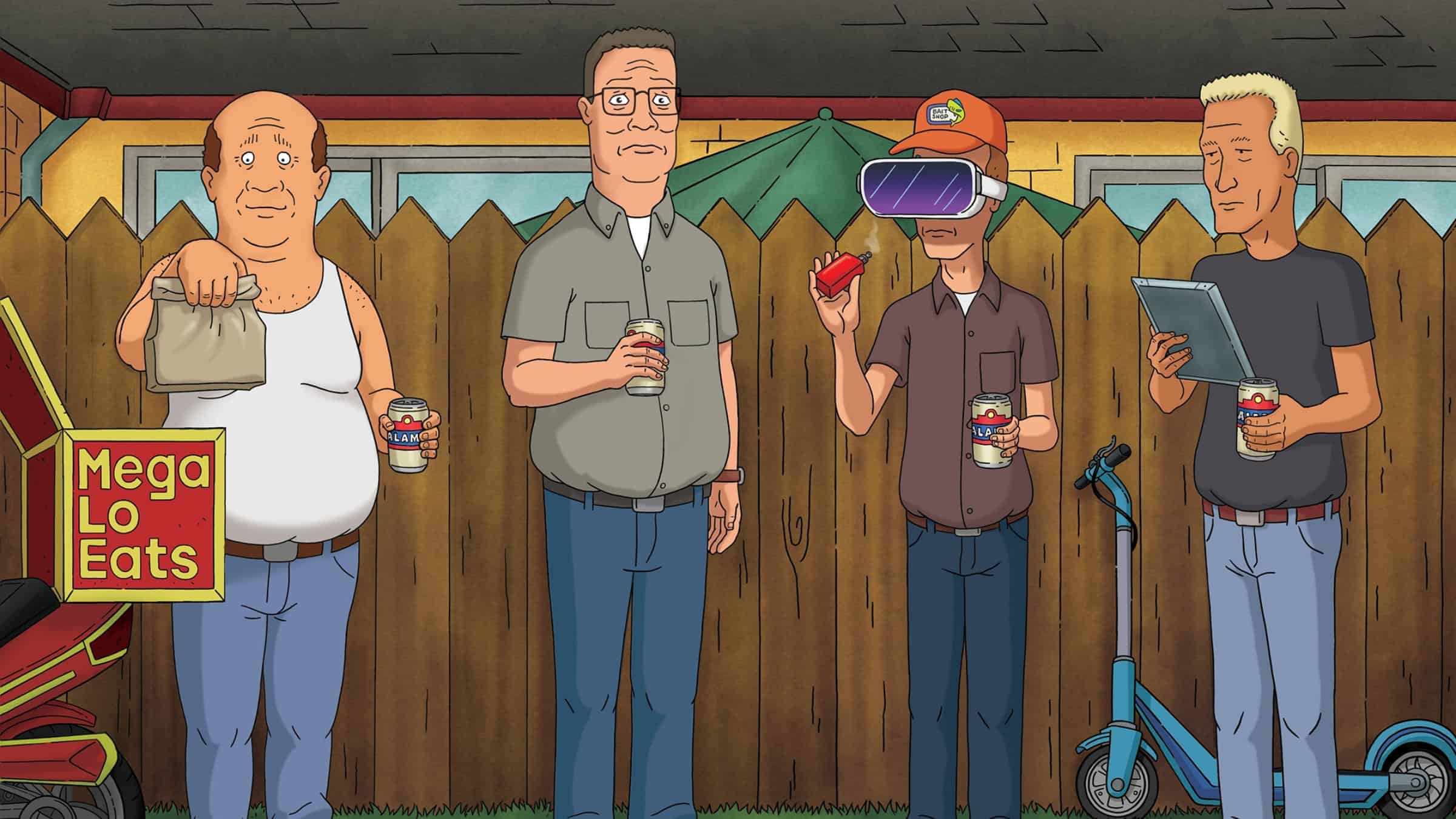By Drew Dietsch
| Published

King of the Hill is one of those animated sitcoms that has managed to maintain its staying power despite longevity and cancellation. It’s always been a funny, good-natured, and sometimes lunkheaded exploration of modern American life.
With the show reviving after fifteen years on the shelf, many fans were wondering how the Hills and their collection of friends and neighbors would adapt to this era after such huge societal changes in the interim.
Well, for good or ill, King of the Hill still feels like its old self, but not necessarily its oldest self.
The Later Seasons of King of the Hill

I love King of the Hill but even I admit that the show started to settle into a steady rhythm of serviceable quality as it rolled on into its later seasons. The show was still enjoyable and could produce an occasional highlight episode, but it was never close to the show’s earlier run.
For as much updating as Season 14 needed to do, King of the Hill doesn’t feel like it’s out of lockstep with where the show left. At least, in terms of its quality. Storywise, there are some great updates like Bobby Hill now owning a German-Japanese fusion restaurant or Boomhauer being a stepfather. But as far as mood, tone, and level of excellence, it’s not too far off from how the show was vibing in Season 13.
The Double-Edged Sword of Familiarity

To some degree, that’s worth celebrating. King of the Hill doesn’t feel like some radical update to the show as a whole. It’s still the series you’ll remember. That’s comforting but also treads the line of feeling too cozy or nostalgic at times. Because of that, it actually makes some of the structural decisions of the season feel a touch off.
For example, Bobby is given a season arc in relation to his feelings for Connie Souphanousinphone. While the show has certainly done multi-part episodes and eventful stories that make a big change to the world, a concentrated season arc for a character is something that feels much more modern and full of potential. It means that episodes are planned out in a way that has to best bolster one specific ongoing story.
As such, Bobby’s story is an engaging one when it’s given the proper time, but it doesn’t quite lock in because of the episodic sitcom nature of King of the Hill. Those structural goals take precedence over anything attempting to feel successfully serialized. It’s by no means a deal-breaker for the season, but if King of the Hill is going to get more ambitious with character stories and arcs, they might need to approach this element with even more ambition. I’d like to see what a serialized season of King of the Hill could be.
Same As It Ever Was

Other than that, King of the Hill is still working at that basic sitcom level. There are plenty of worthwhile topics and targets in this season –– the episode with Hank and his half-brother Good Hank going to a Manosphere boot camp is a highlight for one of Hank’s usual takedowns –– and the show is still a valid forum for satire when it’s at its best.
If you liked King of the Hill when it went off the air in 2010, you’ll like its revival in 2025. It’s nothing revolutionary or brilliant, but it’s the same show with all the same faults and features. Yup.

